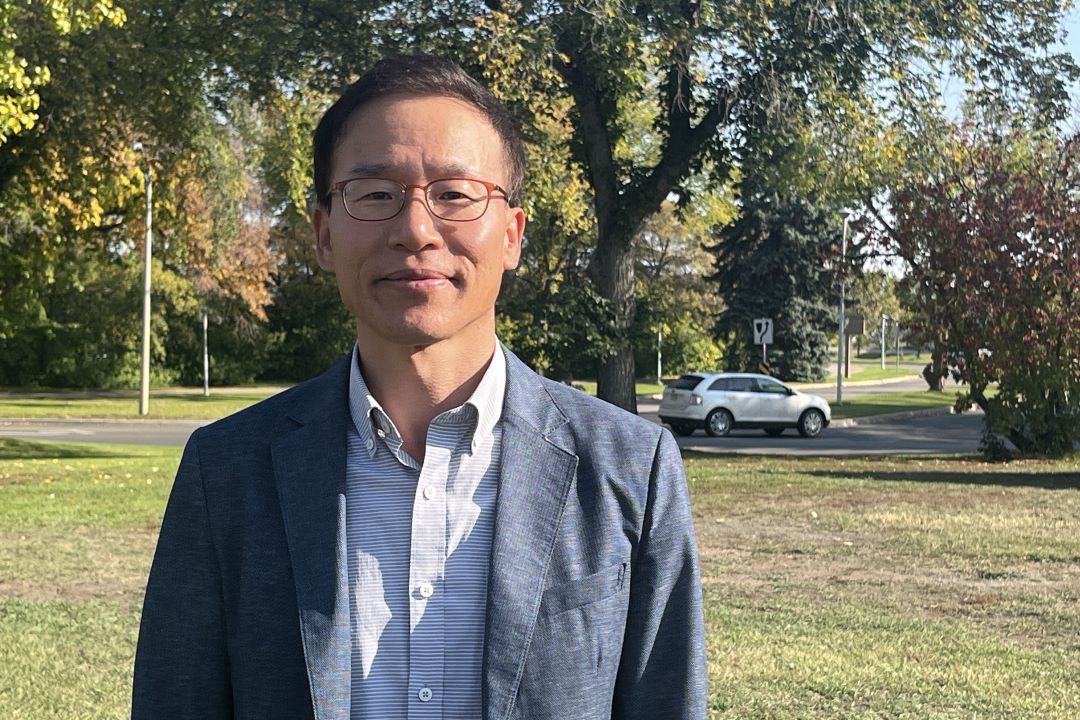
USask Engineering prof adds AI expertise to innovative ag research project
Professor Seok-Bum Ko is contributing his expertise in artificial intelligence (AI) to the climate-forward projects.
Two research projects led by the University of Saskatchewan (USask) have received nearly $12 million to enhance climate-forward research projects in sustainable and resilient agriculture – with a professor from the College of Engineering playing a key role in one of the projects.
Dr. Jon Bennett (PhD), an associate professor in USask’s College of Agriculture and Bioresources, is co-lead of the first USask project, which is exploring the benefits of integrating native grassland species into prairie habitats – a practice known to enhance carbon storage in the soil.
The project will examine the benefits of species and genetic diversity in Canadian grasslands – more specifically the non-market benefits (wild pollination, natural pest control, forage productivity) of integrating native plant species into pastureland used by agricultural producers.
Bennett will be supported by USask Engineering professor Dr. Seok-Bum Ko (PhD), who is contributing his expertise in artificial intelligence (AI) to analyze data gathered during the project.
“Native plants are a much more diverse group of plants than we currently use in forage systems for livestock, and they’ve got a lot of features that aren’t replicated in seeded pasture right now,” Bennett said. “So, if we can find some populations or species that we can use to increase the ecological goods and services provided by these agroecosystems, that is the main thrust of the project.”
Part of the research will also explore carbon sequestration in soils, which is where Ko’s expertise will come into play.
One of the greatest benefits of grassland systems is carbon storage, Bennett said, so the research team will measure levels of carbon in pastures and in grasslands housing native plant species.
“We’re using a variety of genomic techniques to identify the microbes associated with high carbon or low carbon environments,” he said.
Ko was added to the research team when Bennett sought an AI expert. The engineering professor will develop AI models to better predict carbon storage in soil using the data gathered during the course of the project.
“My role is to create an easy-to-use cost and benefit model for grassland management that will include, in a web and mobile application, data on reduced greenhouse gas emissions,” Ko said.
Data from the project could potentially be further explored to help Canada meet its 2030 and 2050 climate emission targets, he added.
Dr. Sean Asselin (PhD) with the Agriculture and Agri-Food Canada (AAFC) Swift Current Research and Development Centre is Bennett’s co-lead on the project. In addition, Dr. Patrick Lloyd-Smith (PhD) and Dr. Sean Prager (PhD) with the College of Agriculture and Bioresources are also involved, with Prager’s work focused on the habitation of beneficial insects in pasture-use grasslands and Lloyd-Smith helping develop economic models to measure the impacts and perceived value of bringing in native plant species.
The project is one of nine Interdisciplinary Challenge Teams (ICTs) that are part of Genome Canada’s Climate-Smart Agriculture and Food Systems initiative (CSAFS). The projects are meant to explore innovative and sustainable solutions for Canada’s food chain and agricultural production. They represent a nearly $70-million research investment, with approximately $27 million coming from the Government of Canada and nearly $42 million from other funding partners.
The second USask ICT is: ACTIVATing genomics to accelerate climate-smart crop delivery. Project leaders are Dr. Kirstin Bett (PhD) and Dr. Curtis Pozniak (PhD), College of Agriculture and Bioresources.

